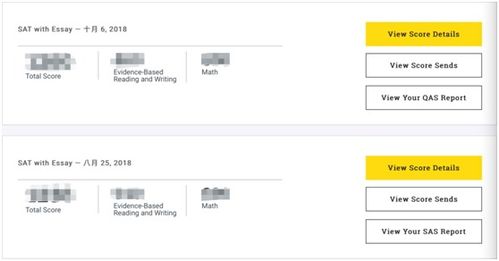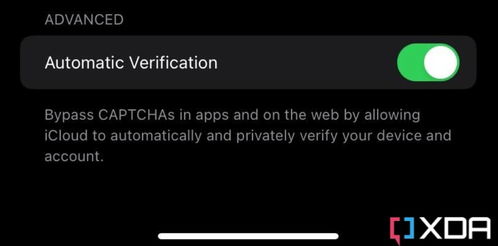Verification: The Multi-dimensional Exploration of a Fundamental Concept

In the realm of information and data-driven societies, the term "verification" holds immense significance. It serves as a cornerstone in ensuring the authenticity, accuracy, and reliability of information, playing a pivotal role across various disciplines. To fully grasp the nuances of verification, it is essential to explore its meaning from multiple dimensions, including its etymological origins, legal and regulatory contexts, technological applications, practical importance, and ethical implications.

Firstly, let's delve into the etymological roots of verification. The word "verification" stems from the Latin verb "verificare," which translates to "make true" or "confirm." This origin underscores the core purpose of verification: to ascertain the truthfulness or accuracy of something. Historically, verification has been a fundamental aspect of human cognition and social interaction, as societies have always sought ways to confirm the reliability of information and facts.

In the legal and regulatory contexts, verification is a critical process. In law, verification often refers to the act of confirming the authenticity of a document, signature, or statement. This process is essential in legal proceedings, where the accuracy and truthfulness of evidence are paramount. Similarly, regulatory bodies rely on verification to ensure compliance with rules and regulations. For example, financial institutions must verify the identities of their clients to prevent fraud and comply with anti-money laundering regulations. This type of verification typically involves checking documents, cross-referencing information with other sources, and sometimes conducting background checks.
Technologically, verification has evolved to leverage advanced methods and tools. With the advent of digital technology, the verification of information has become more sophisticated and efficient. For instance, digital signatures and encryption techniques allow for secure and tamper-proof verification of documents and transactions. In the field of cybersecurity, verification techniques such as penetration testing and vulnerability assessments are used to ensure the security and integrity of systems and networks. These technological advancements have not only made verification more accurate but also more scalable, allowing for the verification of vast amounts of data in real-time.
Moreover, the rise of artificial intelligence (AI) and machine learning has transformed the landscape of verification. AI-driven verification tools can analyze large datasets, detect patterns, and predict outcomes, enabling more efficient and accurate verification processes. For example, facial recognition technology uses AI algorithms to verify the identity of individuals by comparing their facial features to a database of known faces. Similarly, natural language processing (NLP) can be used to verify the authenticity of written documents by analyzing language patterns and contextual cues.
In terms of practical importance, verification is crucial in various domains. In science and research, verification is a fundamental step in the scientific method, ensuring that experimental results are accurate and reproducible. In healthcare, verification is essential for patient safety, as it involves confirming the accuracy of medical records, diagnoses, and treatments. In journalism, verification is critical for maintaining the credibility of news reports, as journalists must confirm the accuracy of their sources and information before publishing.
Furthermore, verification plays a vital role in decision-making processes. In business, verifying financial statements and market data is crucial for making informed investment decisions. In government, verifying the accuracy of census data and economic indicators is essential for formulating effective policies. In academia, verifying research findings and peer-reviewing papers ensures the reliability and validity of scholarly knowledge.
However, the importance of verification also brings to light its ethical implications. The process of verification can sometimes lead to privacy concerns, as it may involve collecting and analyzing personal information. Ensuring that verification processes comply with data protection laws and ethical guidelines is crucial to protect individuals' privacy rights. Additionally, the accuracy of verification processes can be impacted by biases and assumptions, leading to potential inaccuracies and misjudgments. Therefore, it is essential to maintain transparency and accountability in verification processes, ensuring that they are fair, unbiased, and in compliance with ethical standards.
In the digital age, the spread of misinformation and fake news has highlighted the need for robust verification mechanisms. Social media platforms, in particular, have become fertile grounds for the dissemination of false information, as users can easily share and amplify unverified content. To address this challenge, many platforms have implemented verification processes to identify and label credible sources and information. These processes involve checking the authenticity of accounts, verifying the accuracy of content, and sometimes partnering with third-party fact-checking organizations.
Moreover, the rise of blockchain technology has introduced new possibilities for verification. Blockchain, a decentralized and immutable ledger of transactions, offers a secure and transparent way to verify the authenticity and integrity of digital assets and transactions. By leveraging blockchain technology, organizations can create tamper-proof records, ensure the accurate tracking of goods and services, and verify the identity of participants in transactions. This has potential applications in various sectors, including supply chain management, financial services, and healthcare.
Despite the advancements in verification techniques, challenges remain. One significant challenge is the scalability of verification processes. As the amount of information and data grows exponentially, it becomes increasingly difficult to verify the authenticity and accuracy of all content. This requires the development of more efficient and scalable verification methods, such as AI-driven tools and blockchain technology.
Another challenge is the issue of trust. In a world where misinformation and disinformation are prevalent, establishing trust in verification processes is crucial. This involves ensuring that verification processes are transparent, unbiased, and in compliance with ethical standards. It also involves educating users and stakeholders about the importance of verification and how to perform it effectively.
In conclusion, verification is a fundamental concept that plays a crucial role in ensuring the authenticity, accuracy, and reliability of information. From its etymological origins to its modern-day applications, verification has evolved to leverage advanced technologies and methods. Across various domains, verification is essential for maintaining the credibility of information, ensuring compliance with regulations, and supporting informed decision-making. However, the importance of verification also brings ethical implications and challenges, such as privacy concerns and the scalability of verification processes. By addressing these challenges and continuously improving verification methods, we can ensure a more accurate, trustworthy, and information-rich society.
 周五夜放克画家bf(Friday Night Funkin Soft Mod)类型:益智休闲
周五夜放克画家bf(Friday Night Funkin Soft Mod)类型:益智休闲周五夜放克画家bf(Friday Night Funkin ...
 拾一影视免费版类型:影音娱乐
拾一影视免费版类型:影音娱乐拾一影视免费版是一款专为影视爱好者打造的免费追剧神器,提供海...
 王炸炸炸山记类型:模拟经营
王炸炸炸山记类型:模拟经营王炸炸炸山记是一款休闲益智类的模拟经营游戏。在游戏中,玩家将...
 咕咚运动类型:体育运动
咕咚运动类型:体育运动咕咚运动是一款专注于运动健康管理的综合性应用,致力于为用户提...
 元素守护神无敌版类型:策略塔防
元素守护神无敌版类型:策略塔防元素守护神无敌版是一款结合了策略与动作元素的冒险游戏。玩家将...
9.65M游戏速度调节器工具(手机游戏速度调节器)
86.05M语鹭智能app
57.63M春季的最后一天手游
31.54M饭卡最新版
27.43M橙子游戏
29.12Mpo18脸红心跳软件
90.73McncX学堂app
2.55M爆米花大爆炸游戏
79.39M出租车接客2
47.15M智能遥控手机版
本站所有软件来自互联网,版权归原著所有。如有侵权,敬请来信告知 ,我们将及时删除。 琼ICP备2024021917号-9